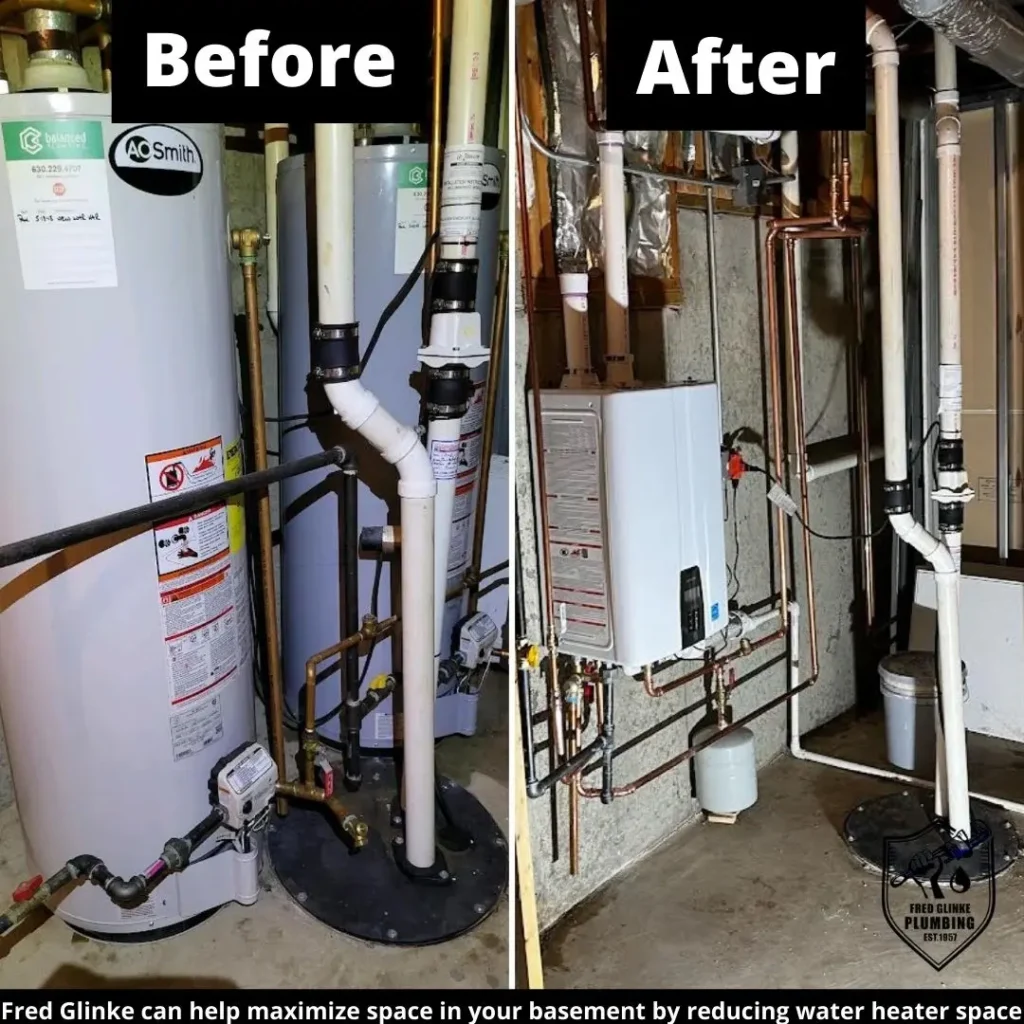How You Know That When to Replace Water Heater?
A water heater is a critical component of any home, providing hot water for showering, cleaning, and performing daily tasks. However, like all appliances, it has a limited lifespan. Knowing when to replace your water heater is essential to preventing unexpected failures and avoiding higher utility bills due to inefficiency.
Here, we explore the signs and factors that indicate it’s time to replace it, along with tips for selecting a new water heater.

Average Lifespan of Water Heaters
The lifespan of a water heater varies depending on its type and maintenance. On average, water heaters last:
Traditional tank water heaters: 8 to 12 years
Tankless (on-demand) water heaters: 15 to 20 years
Heat pump water heaters: 10 to 15 years
Solar water heaters: 15 to 20 years
Regular maintenance, including flushing the tank to remove sediment buildup, can help extend lifespan, but recognizing the key signs of replacement is essential as your water heater ages.
Read Also: Emergency Hot Water Heater Repair Near Me
When to Replace Your Water Heater
A water heater is one of the most essential appliances in your home, providing hot water for showering, washing dishes, and laundry. But how do you know when it’s time to replace it? Here’s a detailed guide to help you decide.
1. Age of the water heater
The average lifespan of a water heater is about 10 to 15 years. If your water heater is approaching or has passed this age range, it’s wise to start considering a replacement. Older units are more prone to failure and inefficiencies.
2. Inconsistent hot water
If you notice that your water heater isn’t providing a consistent supply of hot water, this could be a sign that it’s time to replace it. This inconsistency can be due to a faulty heating element or sediment buildup in the tank.
3. Rusty or discolored water
Rusty water can indicate that the inside of the tank is corroding. This is a clear sign that your water heater is nearing the end of its life. Discolored water should not be ignored, as it can lead to further damage.
4. Strange Noises
Are you hearing clicking, rumbling, or banging noises from your water heater? These sounds are usually caused by sediment buildup in the tank, which can cause overheating and inefficiency. If cleaning the tank doesn’t solve the problem, it may need to be replaced.
5. Leaks and Moisture
Any signs of water leaking around your water heater are a serious concern. While some leaks can be repaired, those coming from the tank itself usually indicate the need for replacement. Even minor leaks can lead to major water damage over time.
6. Lower Efficiency and Increased Energy Bills
Older water heaters tend to be less energy efficient, which can result in higher utility bills. If you’ve noticed an increase in your energy costs without a corresponding increase in usage, it may be time to invest in a more energy-efficient model.
7. Frequent Repairs
If your water heater requires frequent repairs, it may be more cost-effective to replace it. Ongoing repairs can quickly add up and still leave you with an unreliable water heater.
Read More: Should I Replace My 13 Year Old Water Heater
Factors to Consider When Replacing Your Water Heater
Energy Efficiency
Look for a high-efficiency water heater with an ENERGY STAR® rating. Newer models use much less energy than older units, which can lead to substantial savings on utility bills over time.
Type of Water Heater
Consider whether a tankless, tank-based, heat pump, or solar water heater best suits your needs. Tankless water heaters are more energy efficient, but tank-based heaters are typically more cost-effective up front. Heat pumps and solar units offer excellent energy savings, but may have higher installation costs.
Size and Capacity
Choosing the right size for your home is essential for efficiency and consistent availability of hot water. Larger families may require a larger tank, while a small home may benefit from a compact tankless model.
Maintenance Needs
Consider a model with lower maintenance needs if your home has a high water demand or is located in an area with hard water. Regular maintenance requirements vary between models, and some types are more resistant to sediment buildup than others.

Frequently Asked Questions – FAQs
How can I tell how old my water heater is?
Look for the serial number on the manufacturer’s label, which is typically located on the top of the tank. The first two digits typically indicate the year of manufacture.
What does it cost to replace a water heater?
Replacement costs vary by type and size. Traditional tank models range from $500 to $1,500, while tankless models can range from $1,000 to $3,000. Installation fees are usually separate and can vary.
Can I switch from a tank to a tankless water heater?
Yes, although switching to a tankless system may involve additional installation costs. Tankless heaters offer significant energy savings, particularly for smaller homes with lower hot water needs.
Bottom Line
Deciding when to replace your water heater involves considering its age, performance, and the cost of ongoing repairs. By keeping an eye out for these signs, you can ensure that you replace your water heater before it completely fails, avoiding potential damage and inconvenience. Investing in a new, energy-efficient water heater can provide reliable hot water and save you money in the long run.
